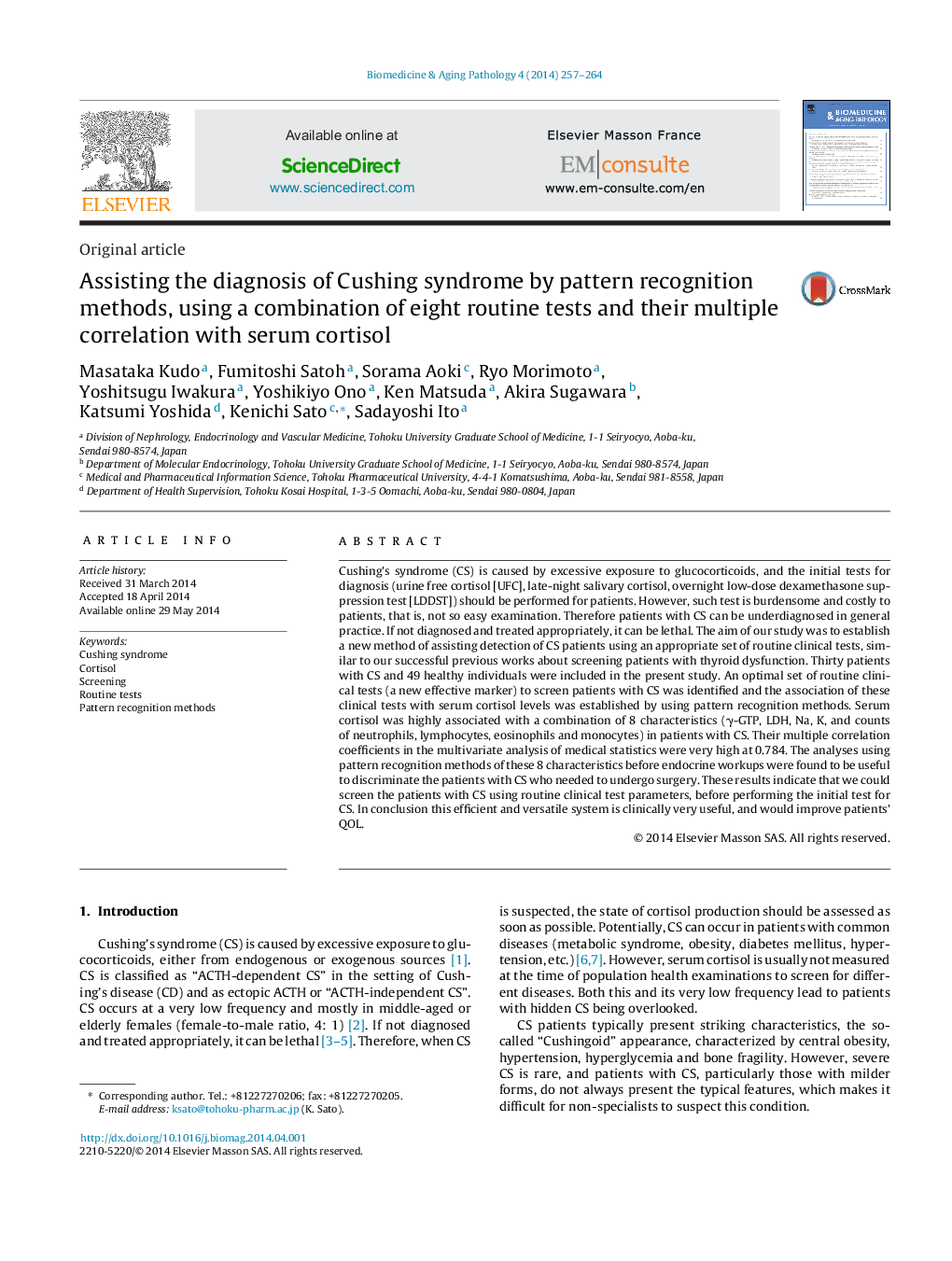| Article ID | Journal | Published Year | Pages | File Type |
|---|---|---|---|---|
| 2576219 | Biomedicine & Aging Pathology | 2014 | 8 Pages |
Cushing's syndrome (CS) is caused by excessive exposure to glucocorticoids, and the initial tests for diagnosis (urine free cortisol [UFC], late-night salivary cortisol, overnight low-dose dexamethasone suppression test [LDDST]) should be performed for patients. However, such test is burdensome and costly to patients, that is, not so easy examination. Therefore patients with CS can be underdiagnosed in general practice. If not diagnosed and treated appropriately, it can be lethal. The aim of our study was to establish a new method of assisting detection of CS patients using an appropriate set of routine clinical tests, similar to our successful previous works about screening patients with thyroid dysfunction. Thirty patients with CS and 49 healthy individuals were included in the present study. An optimal set of routine clinical tests (a new effective marker) to screen patients with CS was identified and the association of these clinical tests with serum cortisol levels was established by using pattern recognition methods. Serum cortisol was highly associated with a combination of 8 characteristics (γ-GTP, LDH, Na, K, and counts of neutrophils, lymphocytes, eosinophils and monocytes) in patients with CS. Their multiple correlation coefficients in the multivariate analysis of medical statistics were very high at 0.784. The analyses using pattern recognition methods of these 8 characteristics before endocrine workups were found to be useful to discriminate the patients with CS who needed to undergo surgery. These results indicate that we could screen the patients with CS using routine clinical test parameters, before performing the initial test for CS. In conclusion this efficient and versatile system is clinically very useful, and would improve patients’ QOL.
